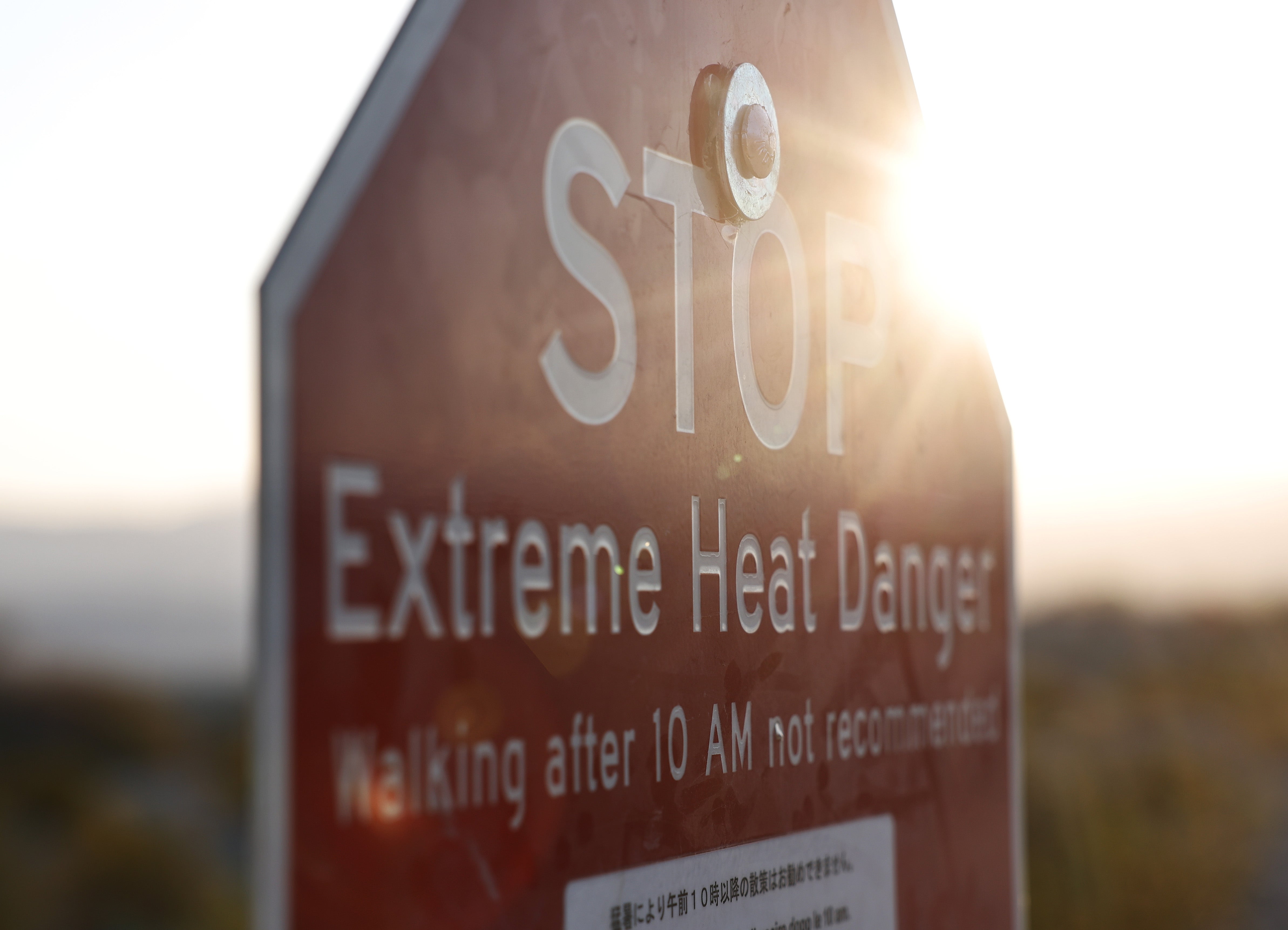Tens of millions of Americans making vacation plans should prepare for a wet and hot start to the summer over the coming weeks.
Just days before the season officially starts, forecasters warned that more thunderstorms were expected across the central Plains and central Appalachians, as majorly high temperatures were anticipated in the Southwest.
“This morning, at Phoenix Sky Harbor, the low temperature was 86 degrees, 7 degrees above the normal for the day. Today will be another hot one with high temperatures expected to be near the 110’s again across the region,” the National Weather Service in Arizona’s capital warned on social media. Temperatures around Phoenix were expected to run between five and 10 degrees above normal through Friday. The monsoon season just started there on Sunday.
In Las Vegas, an extreme heat warning was also in effect on Wednesday and Thursday. The high temperature in nearby Death Valley was 121 degrees on Monday. National Park Service officials had asked visitors to avoid traveling by motorcycle.
The risk of heat-related impacts is projected to shift into the Plains states through the weekend, according to The Washington Post’s meteorologist Ben Noll.

But, heat isn’t all people have to worry about in the coming weeks. Noll noted that humid conditions that contributed to deadly flash flooding in West Virginia last weekend will provide fuel for storms in the Plains and Midwest by mid-week before reaching the East Coast.
“Warm and humid conditions will lead to the development of scattered storms this afternoon and evening,” the National Weather Service’s Quad Cities office in Iowa and Illinois said.
The humidity is tied to high ocean temperatures, and higher-than-average humidity is forecast to plague the eastern U.S. in the coming months. During the next two weeks, extreme levels of humidity are coming for residents in 40 states, Noll explained.
In New York City, residents might be happy to know that warmer and drier weather is on the way — although temperatures have already breached the 90s. But, forecasters there warned that hot and humid weather would start on Sunday and last through “at least the middle of next week.”
In Maine, the hottest days are slated for next Monday and Tuesday. Down the coastline, the Climate Prediction Center said the strongest heat wave of the season thus far is likely for much of the Mid-Atlantic during the first week of summer.

The combination of high humidity and temperatures can feel incredibly oppressive, resulting in a faster heartbeat and other negative health effects.
Human-caused climate change is making all of these concerns more frequent and severe. New research released on Monday says it has tripled the frequency of atmospheric wave events linked to extreme summer weather. Heat waves, in particular, are moving slower and staying longer, a study published last year found.
“This really has strong impacts on public health,” Wei Zhang, a climate scientist at Utah State University and one of the authors of the study, told The New York Times then.



